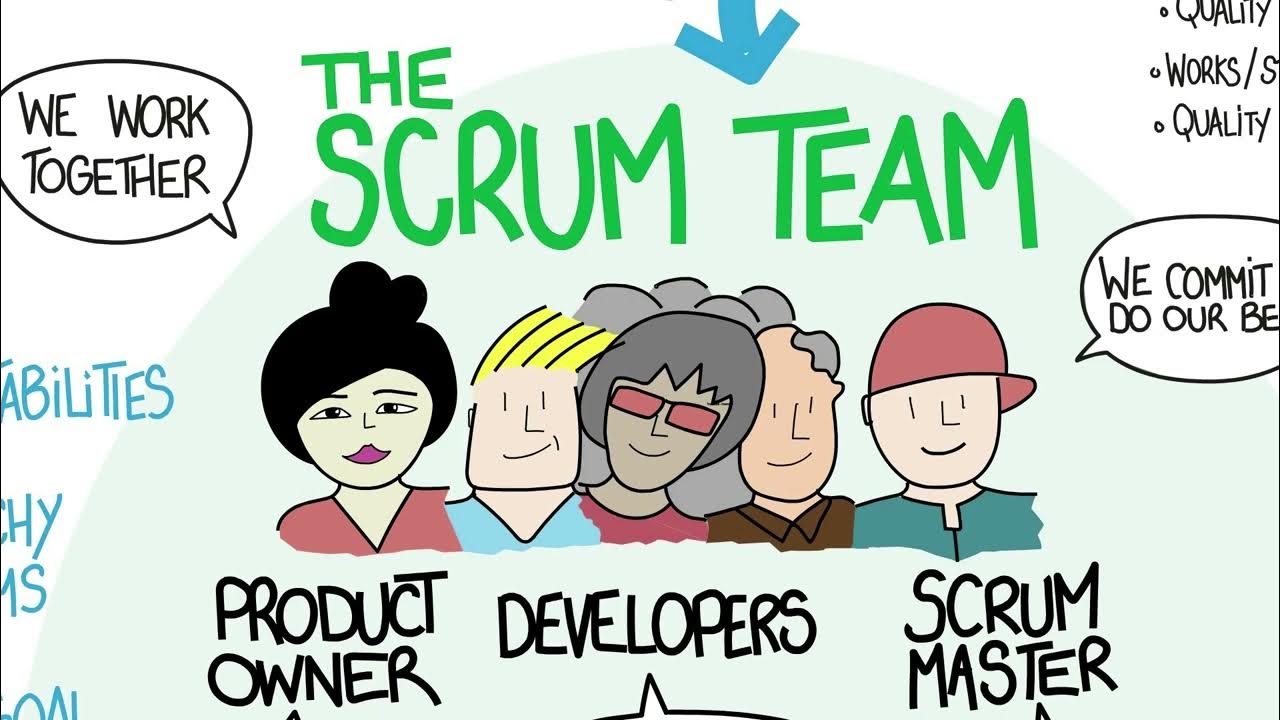Lesson 1.2 Types and Benefits of Team Work
Summary
TLDRThis video explores the different types of work teams in a typical organization, focusing on temporary and permanent teams. Temporary teams are formed for specific tasks, such as project teams for construction or product launches, and disband once the goal is achieved. Permanent teams, like department teams, work continuously within organizations, with specialized skills supporting the department's goals. The video also highlights interdependent teams that rely on each other to complete tasks, such as finance or emergency services. Overall, teamwork is emphasized as a powerful tool for organizational growth and success, fostering collaboration and achieving goals effectively.
Takeaways
- 😀 Temporary teams are formed for a specific period to accomplish a particular task, after which they disband.
- 😀 Project teams are the most common example of temporary teams, working on projects like hotel construction or product launches.
- 😀 Permanent teams work together continuously in organizations, often within departments such as sales or F&B in hotels.
- 😀 Permanent teams rely on team members' specialized skills and expertise to ensure the department functions effectively.
- 😀 Interdependent teams rely on cooperation with other teams to complete major tasks, such as finance and emergency services.
- 😀 Teamwork fosters collaboration and cooperation, which is essential for achieving project goals.
- 😀 Project teams typically handle short- to medium-term projects, requiring high commitment and cooperation from members.
- 😀 Departmental teams are generally permanent, with specific roles like Human Resources, IT, and finance requiring specialized knowledge.
- 😀 Interdependent teams, such as finance or emergency services, need strong collaboration to ensure tasks are completed efficiently.
- 😀 The benefits of teamwork include organizational growth, transformation, and personal development within teams.
- 😀 Reflecting on your own experience, there may be additional benefits to teamwork not explicitly mentioned in the script.
Q & A
What are the key differences between temporary and permanent teams in a workplace?
-Temporary teams are formed for specific tasks or projects and disband once those tasks are completed, such as project teams for product launches or system implementations. Permanent teams, on the other hand, work together continuously within an organization, often in departments like sales or finance.
Can you provide an example of a temporary team?
-A common example of a temporary team is a project team formed to construct a hotel, where the team works together until the hotel is ready for opening, after which the team is disbanded.
What is the main goal of a project team?
-The main goal of a project team is to complete a specific project within a set timeframe, such as launching a new service or implementing a system, requiring cooperation and commitment from all members.
How do permanent teams function within an organization?
-Permanent teams work continuously within departments, performing tasks that require specialized knowledge, such as a sales team in a hotel or an IT team that supports the overall functioning of the organization.
What are some examples of departments that may have permanent teams?
-Examples of departments with permanent teams include Human Resources, IT, finance, sales, and food and beverage teams in a hotel.
What makes interdependent teams unique?
-Interdependent teams are unique because they rely heavily on cooperation and support from other teams to complete their tasks effectively, such as emergency services or finance teams that depend on other departments to achieve major goals.
Why is teamwork considered important in an organization?
-Teamwork is important because it enables collaboration, efficiency, and synergy, allowing organizations to achieve goals more effectively. It fosters growth, transformation, and enhances problem-solving capabilities.
What types of projects are typically handled by temporary teams?
-Temporary teams are typically assigned to short to medium-term projects such as new product launches, organizational change programs, and relocation efforts.
How do the roles within permanent teams contribute to the organization?
-Members of permanent teams contribute their specific expertise, whether in sales, finance, or IT, to ensure that the department and organization function smoothly and efficiently.
Do interdependent teams only exist in large organizations?
-No, interdependent teams can exist in organizations of all sizes. Any organization where different functions must cooperate to achieve a goal—such as finance teams depending on other departments—can have interdependent teams.
Outlines

This section is available to paid users only. Please upgrade to access this part.
Upgrade NowMindmap

This section is available to paid users only. Please upgrade to access this part.
Upgrade NowKeywords

This section is available to paid users only. Please upgrade to access this part.
Upgrade NowHighlights

This section is available to paid users only. Please upgrade to access this part.
Upgrade NowTranscripts

This section is available to paid users only. Please upgrade to access this part.
Upgrade Now5.0 / 5 (0 votes)





